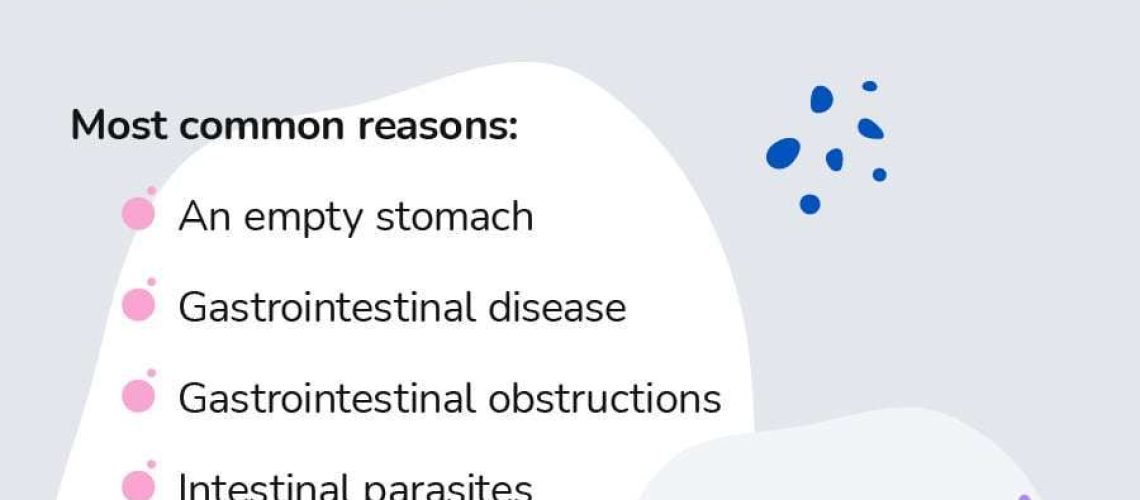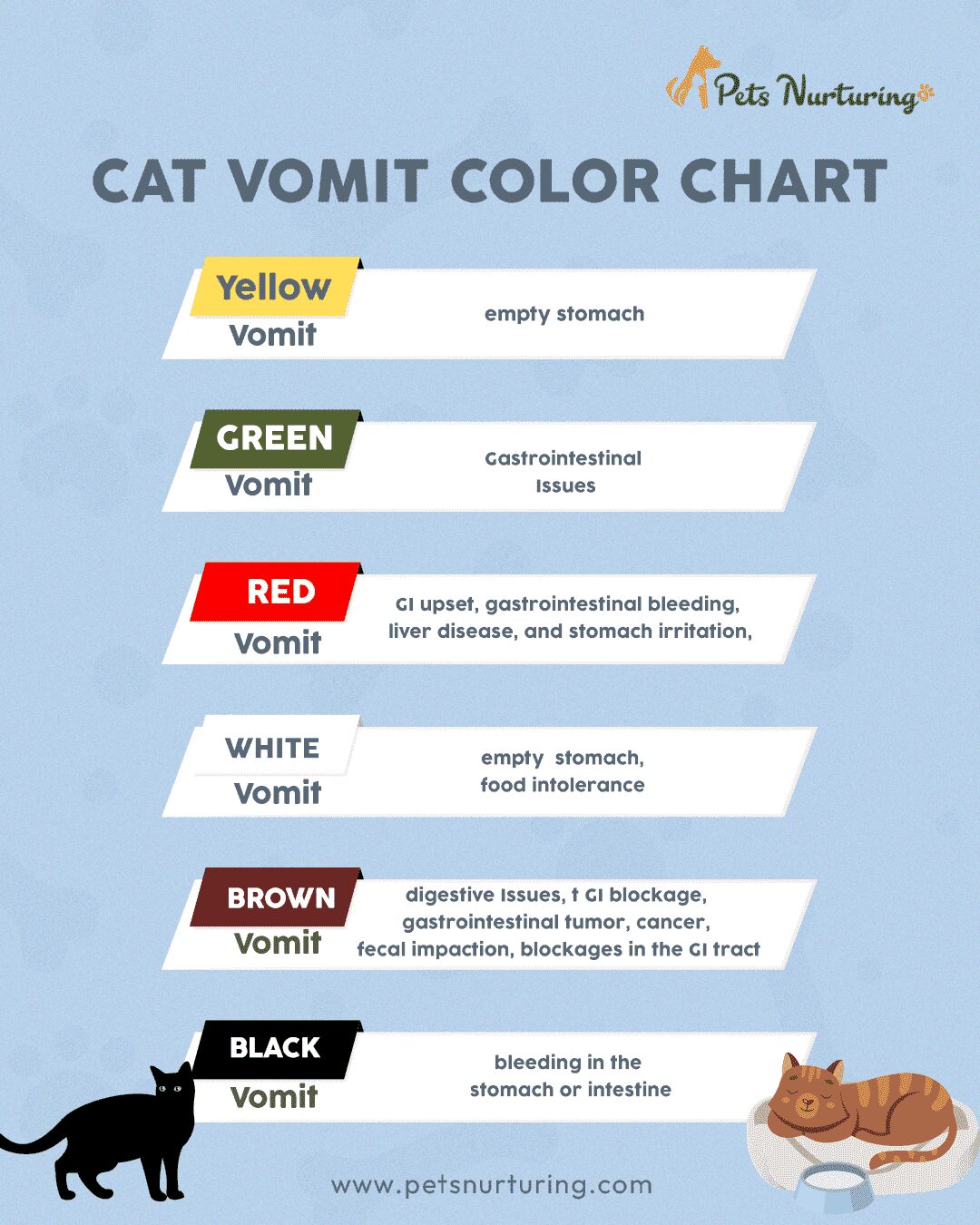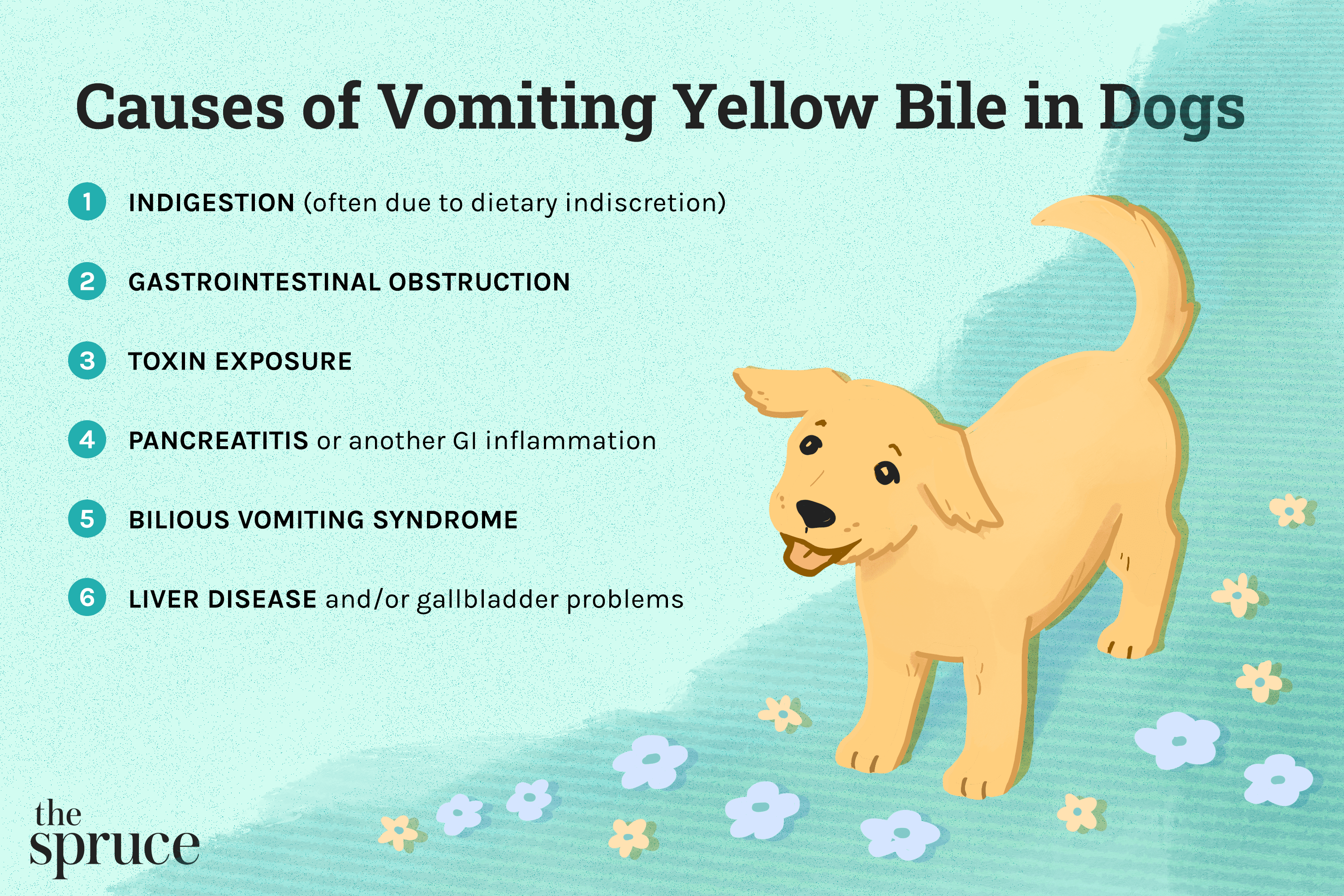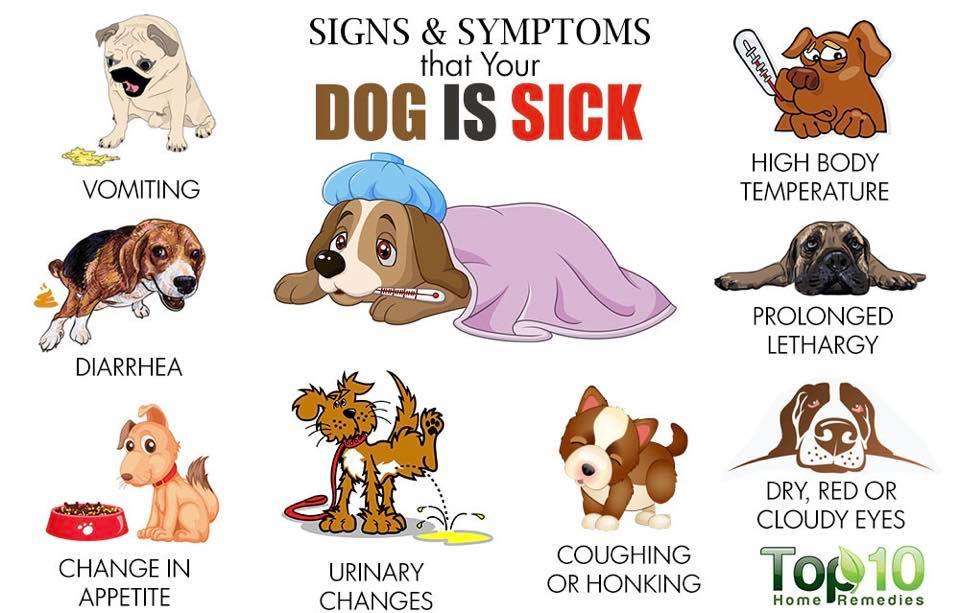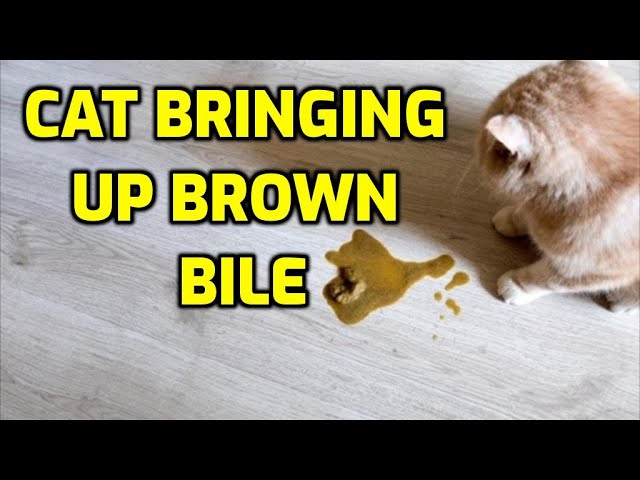Key Takeaways:
- Yellow bile vomit in dogs can be caused by an empty stomach, so feeding smaller, more frequent meals can help prevent it.
- If your dog is throwing up yellow bile, try giving them a small snack or treat before bedtime to keep their stomach from becoming empty overnight.
- Limiting your dog's water intake before bedtime can also help reduce the chances of them throwing up yellow bile in the morning.
- Keep an eye out for other symptoms such as lethargy, loss of appetite, or blood in the vomit, as these could indicate a more serious underlying condition and require veterinary attention.
- If your dog continues to throw up yellow bile or shows other concerning symptoms, it is best to consult with a veterinarian to determine the cause and appropriate treatment.
Introduction:
Are you a dog owner who's ever been worried about your furry friend throwing up yellow bile? If so, you're not alone. Many dog owners have faced this issue, and understanding what to do in such situations is essential for your pet's well-being. In this article, we will delve into the topic of why dogs throw up yellow bile and provide you with valuable insights on how to handle it. By the end, you'll be equipped with the knowledge needed to take care of your beloved canine companion and ensure their health and happiness. So let's get started!
Why is my dog throwing up yellow bile?
Understanding the cause
It can be concerning to see your dog vomiting yellow bile, but it's important to understand that there are several common causes for this. One possible reason is that your dog's stomach may be empty, causing the bile to irritate the stomach lining and trigger vomiting. Another possibility is that your dog has eaten something that doesn't agree with them, such as spoiled food or a foreign object.
Additionally, certain medical conditions can also lead to yellow bile vomiting in dogs. These include gastrointestinal infections, pancreatitis, liver disease, or an intestinal blockage. If your dog continues to vomit yellow bile repeatedly or if they show other concerning symptoms like lethargy or loss of appetite, it's crucial to seek veterinary care.
The importance of prevention
Preventing your dog from vomiting yellow bile can help improve their overall health and well-being. One way to prevent this is by establishing a regular feeding schedule for your furry friend. Feeding them smaller meals throughout the day instead of one large meal can help keep their stomach from becoming empty and reduce the likelihood of bile build-up.
In addition to proper feeding habits, it's essential to ensure that your dog doesn't have access to spoiled food or objects they could ingest. Supervising their outdoor activities and keeping potential hazards out of reach can go a long way in preventing digestive issues.
Tips for preventing yellow bile vomiting:
- Establish a regular feeding schedule with smaller meals spread throughout the day.
- Avoid giving your dog access to spoiled food or objects they could swallow.
- Keep an eye on your dog during outdoor activities and remove any potential hazards.
Home remedies and over-the-counter medications for dogs vomiting yellow bile
When to consider home remedies
If your dog experiences occasional episodes of vomiting yellow bile and their overall health is not compromised, you may try some home remedies to alleviate the symptoms. However, it's crucial to consult with your veterinarian before administering any remedies or over-the-counter medications.
One effective home remedy for reducing bile build-up is feeding your dog a small snack before bedtime. This can help keep their stomach from emptying overnight and prevent morning vomiting. Additionally, providing your dog with access to fresh water throughout the day can also help maintain proper hydration levels and reduce the likelihood of bile reflux.
Over-the-counter options
In some cases, your veterinarian may recommend over-the-counter medications to help manage your dog's vomiting of yellow bile. These medications are typically designed to soothe the stomach lining and reduce irritation. However, it's essential to follow your vet's instructions carefully and only use these medications under their guidance.
Some common over-the-counter options for managing vomiting in dogs include antacids or acid reducers. These can help neutralize excess stomach acid and provide relief from discomfort. Always consult with your veterinarian before giving any medication to ensure it is safe and appropriate for your dog's specific condition.
When to seek veterinary care if your dog continues to vomit yellow bile
The importance of veterinary attention
If your dog continues to vomit yellow bile despite implementing preventive measures or trying home remedies, it's crucial to seek veterinary care. Persistent vomiting can be a sign of an underlying medical condition that requires professional diagnosis and treatment.
Your veterinarian will perform a thorough examination of your dog, which may include blood tests, X-rays, or ultrasound imaging to determine the cause of the vomiting. Based on their findings, they will recommend appropriate treatment options to address the underlying issue and alleviate your dog's symptoms.
Signs that warrant immediate veterinary care:
- Recurring episodes of vomiting yellow bile
- Lethargy or weakness
- Loss of appetite
- Abdominal pain or discomfort
- Bloody vomit or diarrhea
Dietary changes to alleviate your dog's vomiting of yellow bile
The role of diet in managing bile reflux
Diet plays a crucial role in managing your dog's digestive health and reducing the occurrence of vomiting yellow bile. Switching to a high-quality, easily digestible dog food can help alleviate digestive issues and minimize bile reflux.
Look for dog foods that contain lean proteins, easily digestible carbohydrates, and limited fat content. Avoid ingredients that may trigger stomach irritation or allergies in your dog. Additionally, feeding smaller portions more frequently throughout the day can help prevent stomach emptying and reduce bile build-up.
Recommended dietary changes:
- Switch to a high-quality, easily digestible dog food.
- Avoid ingredients that may trigger stomach irritation or allergies.
- Feed smaller portions more frequently throughout the day.
- Consider adding probiotics to promote healthy digestion.
Remember, it's always best to consult with your veterinarian before making any significant dietary changes for your dog. They can provide personalized recommendations based on your dog's specific needs and health condition.
When to seek veterinary care if your dog continues to vomit yellow bile
Recognizing the signs
If your dog is consistently vomiting yellow bile, it may be a cause for concern. While occasional episodes of vomiting can be normal for dogs, frequent or persistent vomiting should not be ignored. Look out for other signs such as loss of appetite, lethargy, diarrhea, or any changes in behavior. These could indicate an underlying health issue that requires immediate attention from a veterinarian.
Seeking professional help
If your dog's vomiting persists for more than 24 hours or is accompanied by other concerning symptoms, it is crucial to seek veterinary care. A veterinarian will be able to conduct a thorough examination and run diagnostic tests to determine the underlying cause of the vomiting. They may also recommend additional treatments or medications to alleviate your dog's discomfort and prevent further complications.
Preventing dehydration
One important aspect to consider when your dog is vomiting is the risk of dehydration. Vomiting can lead to fluid loss, and if left untreated, it can become dangerous for your furry friend. Ensure that your dog has access to fresh water at all times and encourage them to drink small amounts frequently. If you notice signs of dehydration such as dry gums, sunken eyes, or excessive panting, contact a veterinarian immediately.
Keeping track of episodes
To provide accurate information to your veterinarian, it can be helpful to keep a record of your dog's vomiting episodes. Note down the date and time of each episode, along with any accompanying symptoms or changes in behavior. This information will assist the vet in making an accurate diagnosis and developing an appropriate treatment plan for your beloved pet.
Remember, early intervention is key when it comes to addressing health issues in dogs. Don't hesitate to reach out to a veterinary professional if you have concerns about your dog's vomiting.
Dietary changes to alleviate your dog's vomiting of yellow bile
Introducing a gradual transition
If your dog is experiencing frequent bouts of vomiting yellow bile, dietary changes may help alleviate the issue. However, it is important to introduce any new food gradually to avoid further digestive upset. Start by mixing a small portion of the new food with their current diet and gradually increase the proportion over several days. This will allow your dog's stomach to adjust to the new food without causing additional stress.
Choosing easily digestible options
When selecting a new diet for your dog, opt for easily digestible options that are gentle on their stomach. Look for high-quality commercial dog foods that contain lean proteins, such as chicken or turkey, and easily digestible carbohydrates like rice or sweet potatoes. Avoid foods that are high in fat or spices, as these can exacerbate digestive issues and lead to more vomiting.
Feeding smaller, frequent meals
Instead of feeding your dog one or two large meals a day, consider dividing their daily portion into smaller, more frequent meals. This can help prevent long periods of fasting and reduce the likelihood of bile buildup in their stomach. Aim for three to four small meals throughout the day and ensure that your dog has access to fresh water at all times.
Avoiding sudden dietary changes
Abruptly changing your dog's diet can disrupt their digestive system and potentially worsen vomiting episodes. Stick to a consistent diet unless advised otherwise by a veterinarian. If you do need to switch their food due to specific health reasons, consult with a vet who can provide guidance on how to make the transition smoothly.
By making gradual dietary changes and providing regular meals tailored to your dog's needs, you can help alleviate their vomiting of yellow bile. However, if the issue persists or worsens, it is essential to consult with a veterinarian for further evaluation and guidance.
In conclusion, if your dog is throwing up yellow bile, it is important to monitor their behavior and consult a veterinarian. Taking steps such as adjusting their diet, providing smaller meals, and ensuring they stay hydrated can help prevent further vomiting episodes and keep your furry friend healthy.
What can I give my dog for vomiting yellow bile?
If your dog is alert but experiencing a minor upset stomach, you can consider fasting them for a short period of time (up to 12 hours) and then gradually introducing small portions of a bland diet such as a commercial sensitivity diet or, if necessary, cooked chicken, white fish, and boiled rice. This can help alleviate their symptoms.
Should I be concerned if my dog throws up yellow liquid?
Dogs may vomit green or yellow bile if they go without eating for a long time or vomit when their stomach is empty or frequently. If the vomiting of bile happens in the morning, it could be a sign of a less common condition called bilious vomiting syndrome (BVS).
Why is my dog throwing up just yellow liquid?
Dogs may experience yellow vomit due to various reasons, including bile buildup, food allergies, an empty stomach, intestinal blockage, or even liver disease. Regardless of the specific cause, it is crucial to identify the underlying issue as it signifies a message from your dog's gastrointestinal tract.
Should I give my dog water after vomiting bile?
To help your dog's digestion recover from vomiting, it is crucial to allow their digestive system to rest for 12-24 hours without feeding them. However, you can provide small amounts of water to ensure they stay hydrated. Giving your dog food or large quantities of water will only worsen their upset stomach.
Should I feed my dog after vomiting yellow bile?
If your dog vomits yellow bile only once, you can usually go ahead and feed them afterwards. Veterinarians usually suggest a plain diet of chicken and rice. However, if your dog consistently vomits yellow bile, it is important to take them to the vet to determine the root cause.
What color throw up is bad for dogs?
If your dog vomits and there is blood or dark brown/black vomit, it has a foul odor, or you suspect they have ingested something toxic, it is important to contact your veterinarian right away for guidance. The same applies if your dog seems sick or is experiencing any discomfort.



